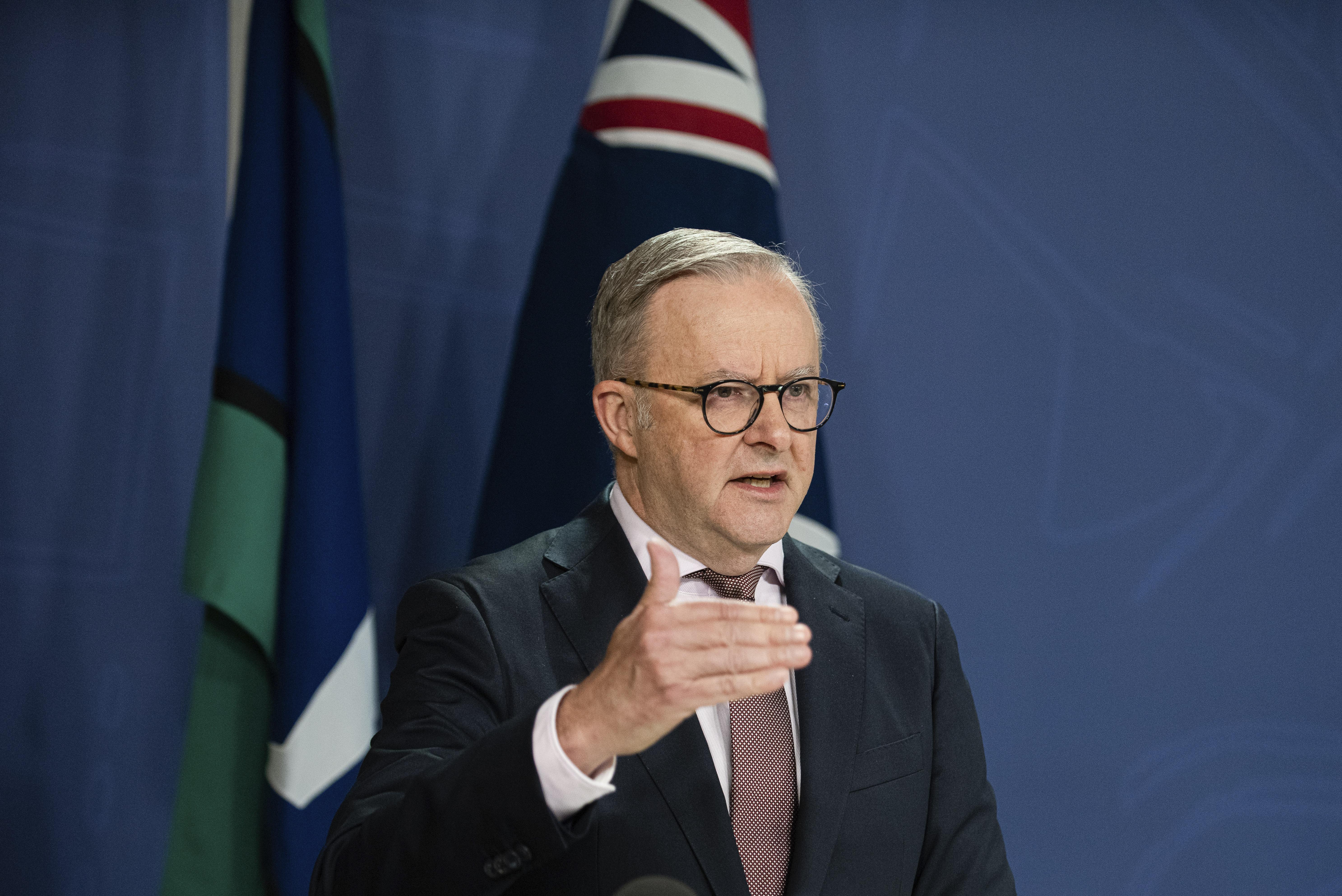 Australian Prime Minister Anthony Albanese gestures as he speaks to the media during a press conference at the Commonwealth Parliamentary Offices in Sydney, Australia, Jan 3, 2024. (PHOTO / AP)
Australian Prime Minister Anthony Albanese gestures as he speaks to the media during a press conference at the Commonwealth Parliamentary Offices in Sydney, Australia, Jan 3, 2024. (PHOTO / AP)
SYDNEY - Australia Prime Minister Anthony Albanese said on Wednesday his center-left government would consider new cost-of-living relief measures ahead of the May budget but without stoking inflation.
Australian households are under broad financial pressure from high inflation, which spiked as high as 7.8 percent in December 2022, before slowing to 5.4 percent in the third quarter.
The Reserve Bank of Australia has had to lift interest rates to a 12-year high of 4.35 percent to try to bring inflation within its target band of 2-3 percent. RBA has jacked up interest rates by a whopping 425 basis points since May last year
"We've asked Treasury and Finance, as we did in the lead-up to the last budget, we asked them to give consideration to what are the measures that can take pressure off families on cost-of-living without putting pressure on inflation”, Albanese said in a press briefing in Sydney.
READ MORE: Relentless rains wreak havoc across Australia's east
"That's the key issue here. If you were just to distribute additional cash to people, you potentially make inflation worse, and therefore don't help to solve the problem".
The Reserve Bank of Australia has had to lift interest rates to a 12-year high of 4.35 percent to try to bring inflation within its target band of 2-3 percent. RBA has jacked up interest rates by a whopping 425 basis points since May last year.
The Albanese-led Labor government in May 2023 announced A$23 billion ($15.6 billion) in targeted cost-of-living relief, but has since resisted pressure for more relief.
READ MORE: Storms leave 1 dead, 120,000 Aussie homes without power
Albanese said steps were being taken to remove all trade impediments with China, Australia's largest trading partner.
His government has taken credit for patching up ties with China since coming to office in May 2022. China has lifted most trade blocks imposed amid a 2020 diplomatic dispute after Australia called for an inquiry into the origins of COVID-19.
READ MORE: Aussie PM Albanese: Migration intake must be sustainable
Albanese's approval ratings dipped last year as families grapple with high living costs. Two polls out last month showed Albanese was in negative territory, with his disapproval ratings outstripping his approval numbers.
When asked if there would be a federal election this year, Albanese said the next one "is due in May 2025", adding the three-year electoral cycle in Australia was "too short" and suggested four-year terms, in line with Australian states.


